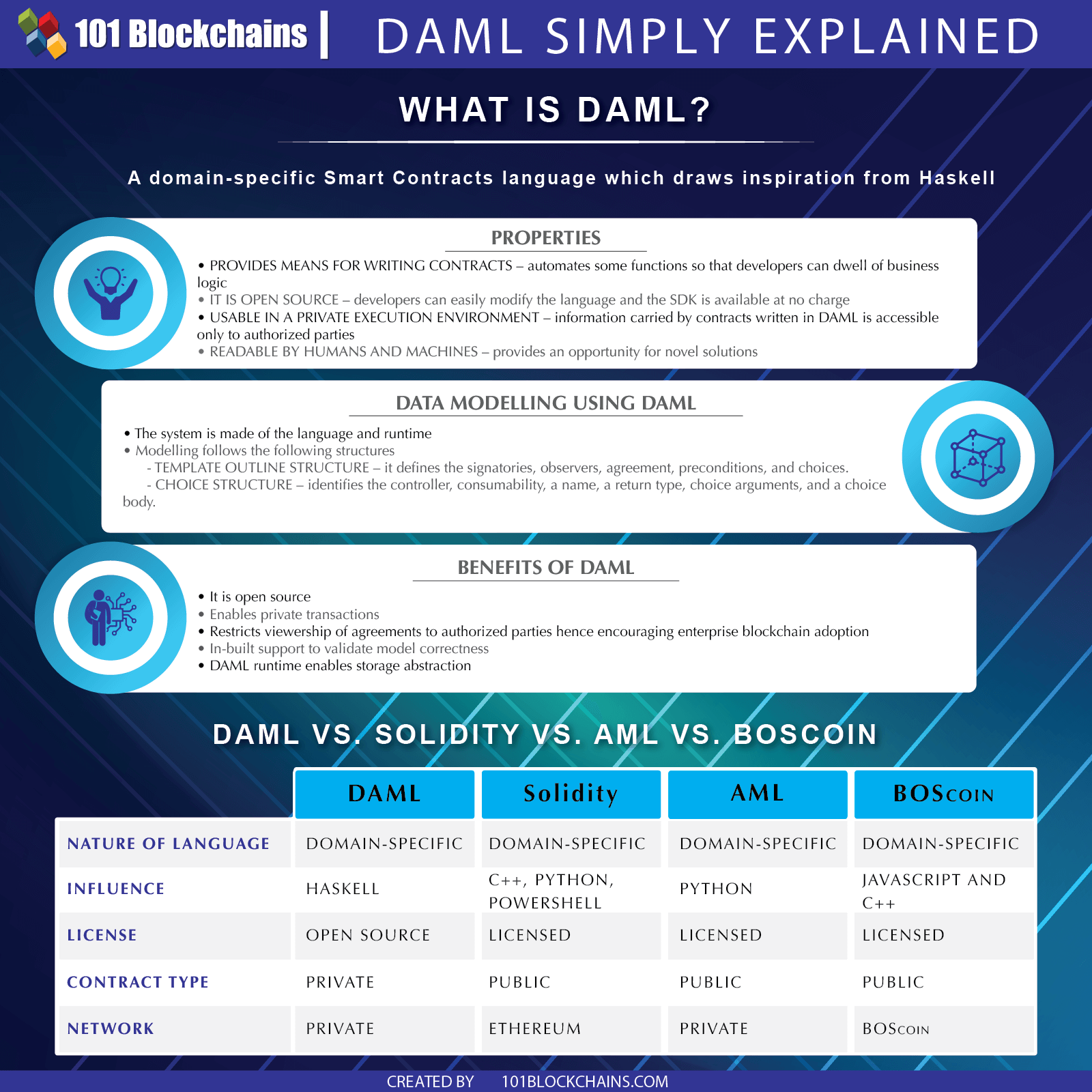
Understanding DAML: The Future of Blockchain
Introduction
In the ever-evolving landscape of blockchain technology, a new player has emerged, promising to revolutionize the way we develop and deploy smart contracts. Meet DAML, a cutting-edge programming language designed to simplify and streamline the process of building decentralized applications (dApps) on the blockchain. In this article, we’ll delve into the intricacies of DAML and explore why it’s poised to shape the future of blockchain development.
The Evolution of Smart Contracts
Smart contracts have long been heralded as the cornerstone of blockchain technology, enabling trustless transactions and automated agreements without the need for intermediaries. However, traditional smart contract languages like Solidity have faced challenges in terms of security, scalability, and ease of use. DAML seeks to address these shortcomings by offering a more robust and developer-friendly alternative.
Simplifying Development with DAML
One of the key advantages of DAML is its simplicity. Unlike other smart contract languages that require developers to deal with low-level details and complex syntax, DAML offers a high-level abstraction that makes it easier to express business logic and define contractual relationships. With DAML, developers can focus on the core functionality of their applications without getting bogged down by the intricacies of blockchain development.
Enhancing Security and Reliability
Security is paramount in the world of blockchain, where the immutable nature of the ledger means that any vulnerabilities or bugs in smart contracts can have far-reaching consequences. DAML mitigates these risks by offering built-in safeguards and formal verification mechanisms that ensure the correctness and reliability of smart contracts. By minimizing the potential for human error and malicious attacks, DAML helps to instill trust and confidence in blockchain-based applications.
Empowering Enterprises with Blockchain Solutions
Enterprises across industries are increasingly recognizing the potential of blockchain technology to streamline operations, reduce costs, and enhance transparency. However, the complexity of traditional smart contract development has been a barrier to adoption for many organizations. DAML addresses this challenge by providing a user-friendly platform that enables enterprises to rapidly prototype, deploy, and iterate on blockchain solutions without extensive technical expertise.
Driving Innovation in Finance and Beyond
The financial sector has been at the forefront of blockchain innovation, with applications ranging from digital currencies to supply chain finance. DAML’s versatility and flexibility make it well-suited for a wide range of use cases within finance, including asset tokenization, peer-to-peer lending, and trade finance. By providing a robust foundation for building financial applications, DAML is poised to catalyze further innovation and disruption in the industry.
Unlocking New Possibilities
Beyond finance, DAML has the potential to transform a myriad of other industries, including healthcare, logistics, and real estate. By enabling secure and efficient transactions, automating business processes, and facilitating collaboration among disparate parties, DAML opens up new possibilities for innovation and value creation. Whether it’s streamlining supply chain management, improving patient care coordination, or revolutionizing property ownership, the applications of DAML are limited only by the imagination.
Conclusion
In conclusion, DAML represents a significant step forward in the evolution of blockchain technology. By simplifying development, enhancing security, and empowering enterprises to harness the full potential of blockchain, DAML is poised to drive innovation and transformation across industries. As we continue to explore the possibilities of this groundbreaking platform, one thing is clear: the future of blockchain looks brighter than ever with DAML leading the way. Read more about daml blockchain
